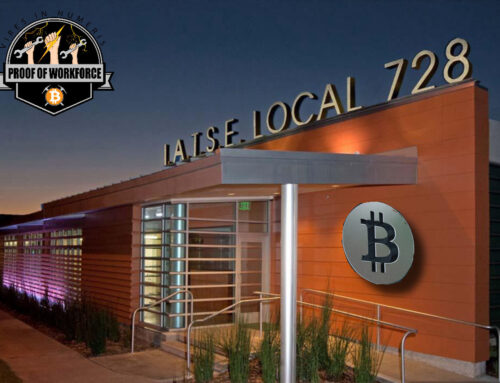How to Access Renewable Energy Funding from Middle Eastern Wealth Funds
February 9, 2025
Middle Eastern wealth funds, particularly sovereign wealth funds (SWFs), have emerged as significant players in the global investment landscape. These funds are typically state-owned and are established to manage the surplus revenues generated from natural resources, particularly oil and gas. Countries like Saudi Arabia, the United Arab Emirates, and Qatar have created these funds to diversify their economies and invest in various sectors, including technology, real estate, and renewable energy.
Understanding the motivations and strategies of these wealth funds is crucial for NGOs looking to engage with them effectively. The primary goal of these wealth funds is to ensure long-term financial stability and economic diversification. As many Middle Eastern countries face the challenge of fluctuating oil prices and the need to transition to sustainable energy sources, their wealth funds are increasingly looking for investment opportunities that align with these goals.
This shift presents a unique opportunity for NGOs focused on renewable energy and sustainable development. By understanding the investment priorities of these funds, NGOs can tailor their approaches to align with the strategic interests of wealth fund managers, thereby increasing the likelihood of securing funding for their initiatives.
Identifying Renewable Energy Opportunities
As the world moves towards a more sustainable future, renewable energy has become a focal point for investment. Middle Eastern wealth funds are increasingly recognizing the potential of renewable energy projects, not only as a means of diversifying their portfolios but also as a way to contribute to global sustainability efforts. For NGOs, identifying specific opportunities within this sector is essential for attracting investment from these funds.
One effective strategy is to conduct thorough market research to pinpoint areas where renewable energy projects can thrive. For instance, solar energy has immense potential in the Middle East due to its abundant sunlight. NGOs can explore partnerships with local governments or private entities to develop solar farms or community-based solar initiatives.
Additionally, wind energy is gaining traction in certain regions, such as the Gulf of Suez in Egypt. By presenting well-researched opportunities that highlight both environmental benefits and economic viability, NGOs can position themselves as valuable partners for wealth funds looking to invest in renewable energy.
Building Relationships with Middle Eastern Wealth Funds
Establishing strong relationships with Middle Eastern wealth funds is crucial for NGOs seeking investment. These relationships are often built on trust, mutual understanding, and shared goals. To foster these connections, NGOs should prioritize networking and engagement with key stakeholders within the wealth fund ecosystem.
Attending industry conferences, participating in investment forums, and leveraging social media platforms can help NGOs connect with decision-makers and influencers in the wealth fund space. Moreover, understanding cultural nuances is vital when building relationships in the Middle East. Respect for traditions, patience in negotiations, and a willingness to engage in face-to-face meetings can significantly enhance rapport with potential investors.
NGOs should also consider collaborating with local partners who have established networks and insights into the regional investment landscape. By combining local knowledge with their expertise in sustainable development, NGOs can create compelling narratives that resonate with wealth fund managers and demonstrate their commitment to shared objectives.
Crafting a Compelling Investment Proposal
A well-crafted investment proposal is essential for attracting funding from Middle Eastern wealth funds. This proposal should clearly articulate the project’s objectives, expected outcomes, and alignment with the fund’s investment strategy. NGOs must emphasize the potential return on investment (ROI) while also highlighting the social and environmental impact of their initiatives.
To create a compelling proposal, NGOs should include detailed financial projections, risk assessments, and timelines. Providing case studies or examples of similar successful projects can bolster credibility and demonstrate feasibility. Additionally, incorporating visual elements such as infographics or charts can make complex information more digestible for potential investors.
By presenting a comprehensive and persuasive proposal, NGOs can effectively capture the attention of wealth fund managers and increase their chances of securing funding.
Navigating the Investment Process
Once an NGO has piqued the interest of a Middle Eastern wealth fund, navigating the investment process becomes paramount. This process often involves multiple stages, including due diligence, negotiations, and final agreements. NGOs should be prepared to provide extensive documentation regarding their organizational structure, financial health, and project specifics during due diligence.
Effective communication is key throughout this process. NGOs should maintain transparency and be responsive to inquiries from wealth fund representatives. Establishing a dedicated team to manage communications can streamline this process and ensure that all parties are aligned on expectations and timelines.
Additionally, being flexible and open to feedback during negotiations can help build goodwill and foster a collaborative atmosphere that may lead to more favorable terms for both parties.
Leveraging Government Initiatives and Incentives
Middle Eastern governments are increasingly promoting renewable energy initiatives through various incentives and support programs. NGOs can leverage these government initiatives to enhance their proposals when seeking funding from wealth funds. Understanding the regulatory landscape and available incentives can provide NGOs with a competitive edge in attracting investment.
For example, many countries in the region have set ambitious renewable energy targets and offer tax breaks or subsidies for projects that align with these goals. By incorporating these incentives into their proposals, NGOs can demonstrate not only the financial viability of their projects but also their alignment with national priorities. Collaborating with government agencies can also enhance credibility and provide additional resources or support for project implementation.
Ensuring Environmental and Social Responsibility
As global awareness of environmental and social issues grows, ensuring that projects align with principles of sustainability and social responsibility is crucial for attracting investment from Middle Eastern wealth funds. NGOs must prioritize environmental stewardship by conducting thorough impact assessments and implementing best practices in project design and execution. Moreover, engaging local communities in project planning and implementation can enhance social responsibility efforts.
By involving stakeholders in decision-making processes, NGOs can ensure that projects address local needs and concerns while fostering community support. This approach not only enhances project sustainability but also aligns with the values of many wealth funds that prioritize responsible investing.
Managing the Long-Term Relationship with Wealth Funds
Securing funding from Middle Eastern wealth funds is just the beginning; managing the long-term relationship is equally important for sustained success. Regular communication, progress updates, and transparency regarding project outcomes are essential for maintaining trust and confidence among investors. NGOs should also be proactive in seeking feedback from wealth fund representatives to understand their expectations better and identify areas for improvement.
Celebrating milestones together and showcasing project successes can strengthen relationships over time. Additionally, exploring opportunities for further collaboration or additional funding can help ensure that both parties continue to benefit from their partnership. In conclusion, engaging with Middle Eastern wealth funds presents significant opportunities for NGOs focused on renewable energy initiatives.
By understanding the landscape of these funds, identifying viable projects, building strong relationships, crafting compelling proposals, navigating the investment process effectively, leveraging government initiatives, ensuring environmental responsibility, and managing long-term relationships, NGOs can position themselves as valuable partners in driving sustainable development in the region.
Search
RECENT PRESS RELEASES
Related Post



